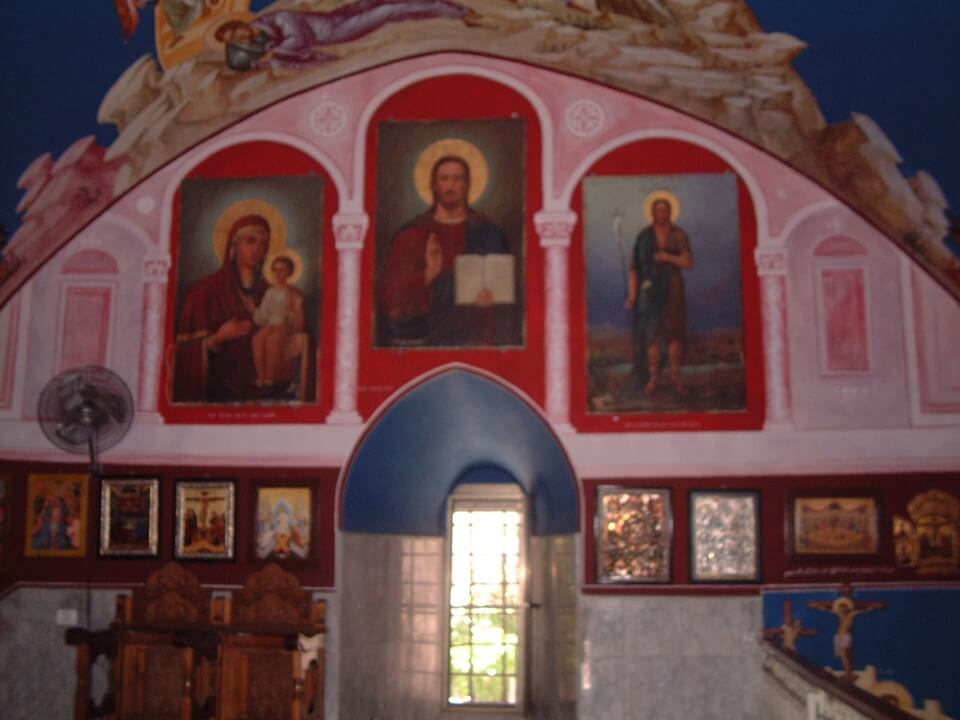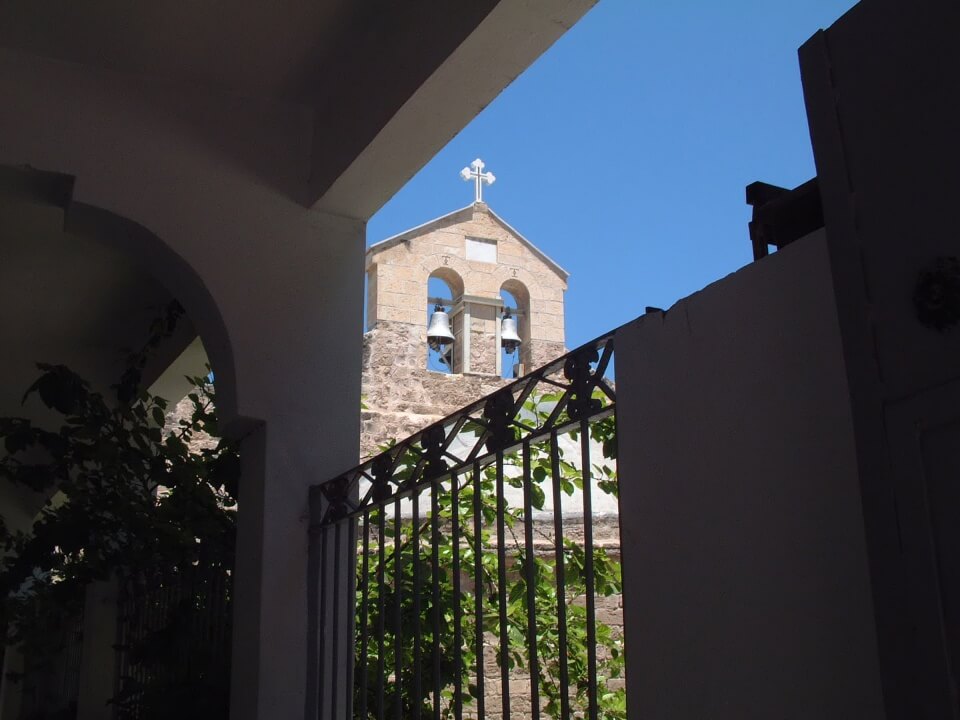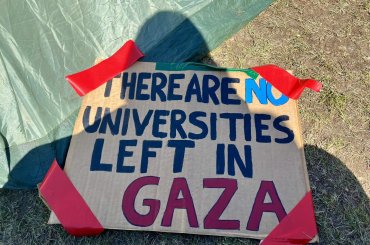Palestinian Christians have a special relationship with the holy land of Palestine for it is the birthplace of Christianity. They have been living in Palestine since the time of Jesus for over 2000 years. Cities such as Bethlehem and Nazareth hold major importance, not only for Palestinian Christians, but for Christians all around the world as Bethlehem is the birthplace of Jesus in Christianity. Since the creation of the state of Israel in 1948, Palestinian Christians have been subjected to brutal military occupation in their homelands. Israel does not differentiate between Palestinian Christians and Muslims when it carries out its occupational policies.
As a result of Al Nakba in 1948, Al Naksa in 1967 and many other wars on the Palestinian people, the majority of Palestinian Christians have been forced to flee and seek refuge in neighbouring countries and abroad. To put this in numbers, before 1922, the total percentage of Christians living within the borders of the Palestinian territory was 4% but in 2005, it was estimated that the percentage of Palestinian Christians living in the Palestinian territories has dropped down to from 3.4% to 2.1%.
Bethlehem is dominated in equal measure by churches and mosques, a symbol of the increased diversity of the region’s people. Since 1948 many Palestinian Christians have been living in refugee camps outside the sacred city. The Christian population in Bethlehem now stands at a mere 28% of the total population. Just as other Palestinians they face many challenges moving from one city to another due to Israel’s Apartheid checkpoints. It is virtually impossible for them to travel to the Gaza Strip which is home to some of the oldest Christian holy sites in the world. Likewise, Christians living in Gaza face many obstacles when traveling to Bethlehem or other holy cities in the West Bank. Since Shalit’s capture by the Palestinian resistance, only 20% of Gazan Christians who apply for permission are issued permits. People between the ages of 16-36 years are not allowed to travel due to security measures implemented by Israel .
Palestinian residents of Bethlehem are all subjected to the same military occupation. This includes going through humiliating military checkpoints, targeted assassinations, house demolitions, curfews and an Apartheid wall that encircles Bethlehem.

A representative from the Centre of Political and Development Studies (CPDS) had the opportunity of visiting the Church of Saint Porphyries. The church which is located in Saha Area, Gaza city was built approximately 1600 years ago and is the oldest of its kind in Gaza.
A mosque by the name of Kitab Wiliya stands directly next to the church. The only thing that separates the two places of worship is mere thin wall. The church is administrated by the Greek Orthodox Patriarchate of Jerusalem. Although politically Palestinians may be divided, religion ironically brings all Palestinians together. The Palestinian Christians have the same dream of returning back to their homelands that was stolen from them with the creation of the state of Israel. Palestinian Christians stand shoulder to shoulder with their fellow Muslim Palestinians. For this reason the Palestinian Christians have sacrificed a lot to keep the Birthplace of Christianity protected and preserved.
In the fifth century, St Porphyries came to Gaza and built a church. It took him five years to build it and he got the financing from Constantinople. Today the St Porphyries church stands as one of the oldest churches in Gaza. St Porphyries himself was buried inside the church. His tomb and icon are still inside the church. Israel has been trying to portray the Palestinian issue as a “Muslim Versus Jew” conflict. However, this is not the case. I conversed with a Palestinian Christian in Gaza and put forward some questions concerning the role of Christians throughout the long history of conflict. The Interview went as follows:
How do you feel when you know that there are Christians that support Israel?
A: They are Christian Zionists not Christians. Jesus taught to forgive, love your enemy and to carry on the brother hood in the whole world. They are not true Christians.
How is your relationship with the Muslims in Gaza, do you both want freedom for Palestine?
A: Of course. In Palestine, Muslims and Christians have been hand in hand resisting against the Israeli occupation. We are Arab and Palestinians. We share the same feelings and suffering from the Israeli occupation. So we work together.
How do you perceive the Palestinian cause?
A: Thanks for this question. I don’t like it when people talk about Islamic holy sites and forget about Christian ones. There are also many Christians living in the area of East Jerusalem. You have to talk about Palestinian Muslims and Christians together.
Palestine Christians expect from their fellows all over the world to stand by them to free Palestine, so that all people of Palestine, regardless their religion can pray peacefully for a better tomorrow.



So, where’s Huckabee on this issue? He’s traipsed through Israel dozens of times and has his own show on prime cable TV time. Just doing his own version of Jim Nabors without a singing voice?
Oh yeah: https://mondoweiss.mystagingwebsite.com/2011/02/mike-huckabees-ill-informed-and-dangerous-views-on-israelpalestine-may-end-up-in-the-white-house.html
It takes a strong will to be so persistently ignorant.
Palestinian Christians call themselves ‘living stones’ there, a term our media will never use as it publicizes their long long history there as the first Christians.
Palestinian Bishop Ramzi R. Musallam: “I support Palestine the first land that accepted Jesus and followed Him. Palestine will be protected by Christ through His blood. People will come to know the truth and follow.”
This article is missing a comparison between the way Palestinians treat holy sites of other religions and the way Israelis treat holy sites of other religions, whether it’s settlers burning mosques, Israeli authorities demolishing historical sites, or destroying graves from time immemorial courtesy of the Simon Wiesenthal Center.
http://www.haaretz.com/news/national/rare-photograph-reveals-ancient-jerusalem-mosque-destroyed-in-1967.premium-1.436593
The GOI wants to avoid at all costs a conflict with world wide Christendom and especially with American Christians. That’s why the Presbyterian boycott is so signifigant. The Presbyterian BDS initiative shines a light on the plight of Palestinian Christians who the GOI have carefully hidden from view. It also asks a simple question of people from any and all religious faiths: Do you and your fellow believers believe in justice? Let’s hope Presbyterian BDS goes through because an initiative like this one, that involves a huge American Christian organization, will surely spell trouble for Israel firsters in ways that secular BDS initiatives (TIAA- CREF) do not.
We should be frank about it. The fact is, American Christians are not, by and large, all that serious about their faith. This explains why they are indifferent to the fate of Christians in Palestine, Syria, Iraq, Egypt, and Lebanon. Note how much this is in contrast to Western Christians of earlier generations, who painstakingly, if often hypocritically, scoured the globe for persecuted communities of the faithful.
Christianity in America is powerful only in relative terms. In comparison to Europe, yes, America is religious. But Tocqueville wrote of an America in which all business and all entertainment stopped on the Sabbath. And not because of legal regulation principally, but because of social consensus. That is not the America of today.